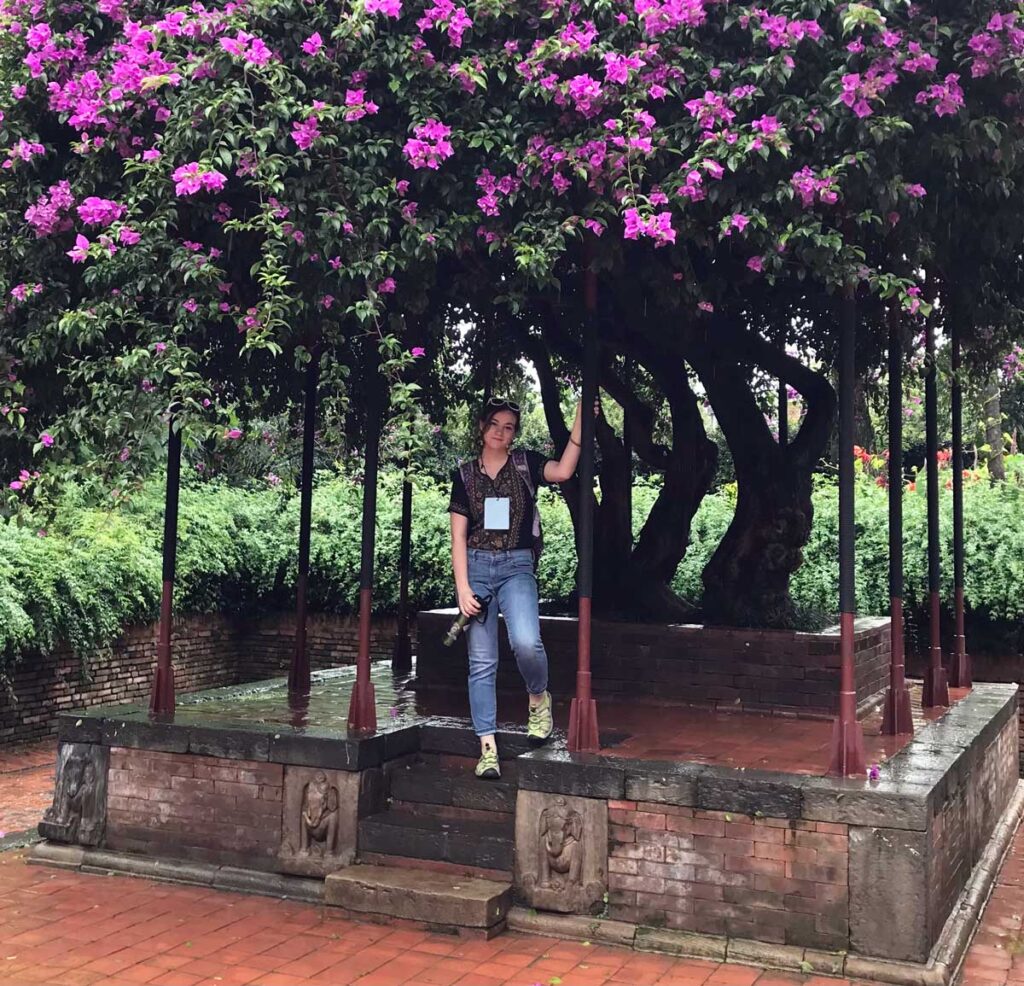Sean Corp, Content Strategist

Taylor Faires is a bit of a Mythbuster. But unlike the over-the-top, TV-friendly experiments and explosions featured often on the cable series from the early 2000s, Faires is focused on helping people get a better idea of what they know and don’t know about copyright. Fewer fireworks, yes, but an integral part of any project at the Center for Academic Innovation.
A recent graduate with a masters degree in Information Science, the North Carolina native works as the Copyright Student Fellow on a team that helps faculty build massive open online courses with the center. That means ensuring material is easily accessible to a worldwide audience and also doesn’t violate any copyright restrictions.
There is a lot people misunderstand about copyright, and she is there to help them work through the process and deliver quality education through their courses. Faires became particularly interested in hacking and piracy laws, and during her time as a Student Fellow created a guide to help people evaluate the needs when they wanted to collect information online.
1. What is your role at CAI and what kind of projects have you worked on?
I am an outgoing Copyright Fellow at the Center for Academic Innovation. In my day-to-day work at CAI, I helped to review third-party material on MOOCs in order to make sure that they’re in compliance with copyright law.
I also have worked on several guides and resources on topics such as data copyright, software licensing, and common copyright misconceptions. In addition to my work in copyright at the center, I’ve worked with the Open Educational Resources Working Group in helping to educate the University of Michigan community about Open Educational Resources and expand their use in the classroom to help reduce the burden for students regarding high textbook costs.
2. What has been something unexpected or exciting about your work at CAI?
When I started my position at CAI, I didn’t expect the level of flexibility afforded to fellows regarding projects. I’ve found that I have been encouraged at every step of the way to pursue projects relating to copyright that I feel passionately about. For example, my interest in hacking and piracy laws in the United States and elsewhere helped me in honing in on what topic I wanted to cover. This passion eventually translated into creating the Web-Scraping, Web-Crawling, and APIs Guidebook. While not all laws and policies covered in this guide are specifically copyright law, hacking and piracy laws do intersect with copyright law and I was encouraged to explore that intersection.
The same can be said for my involvement in the OER Working Group. While an understanding of copyright certainly helps in educating the community about Open Educational Resources, the OER Working Group is comprised of individuals from many different backgrounds and specialities and it has been really rewarding to work with them.
3. How do you think your fellowship is preparing you for your future career?
I think an understanding of copyright is helpful for nearly any career. This being said, my fellowship has prepared me well for working in the realm of academia. As a recent graduate of the School of Information, I’m hoping to work as a university librarian either in a scholarly communications role or as a subject specialist in the social sciences. Both of these career paths require an understanding of copyright as librarians often help faculty navigate the world of scholarly publishing. In the case of scholarly communications, helping navigate issues relating to copyright is central to the role of a librarian. Additionally, social sciences are increasingly using more qualitative methods in research. Social media research is a rapidly growing area in the social sciences and understanding the legal landscape around web-scraping, online databases, and APIs is very important.
4. What is something you like to do in your spare time?
In my spare time I like to write and perform music under the stage name, Ferrest. When I’m not writing music I’m typically reading, traveling, hiking, or trying to find the best coffee shop in any given city (a current favorite for me is Argus Farm Stop on Packard).
5. What is one thing you know now about being a student at U-M that you wish you could go back in time and tell yourself on your first day of school?
Coming from a much smaller undergraduate school, I was really overwhelmed at first at the sheer number of clubs and organizations you can get involved with at U-M. I wish I could go back in time and tell myself that it’s OK to test things out and, even more so, it’s OK to want free time outside of clubs and organizations. I think it’s very easy to get overwhelmed and either overbook yourself or decide not to try anything out at all because there are too many options. You absolutely can find a balance but it may take some trial and error and that’s more than OK – it’s normal!


